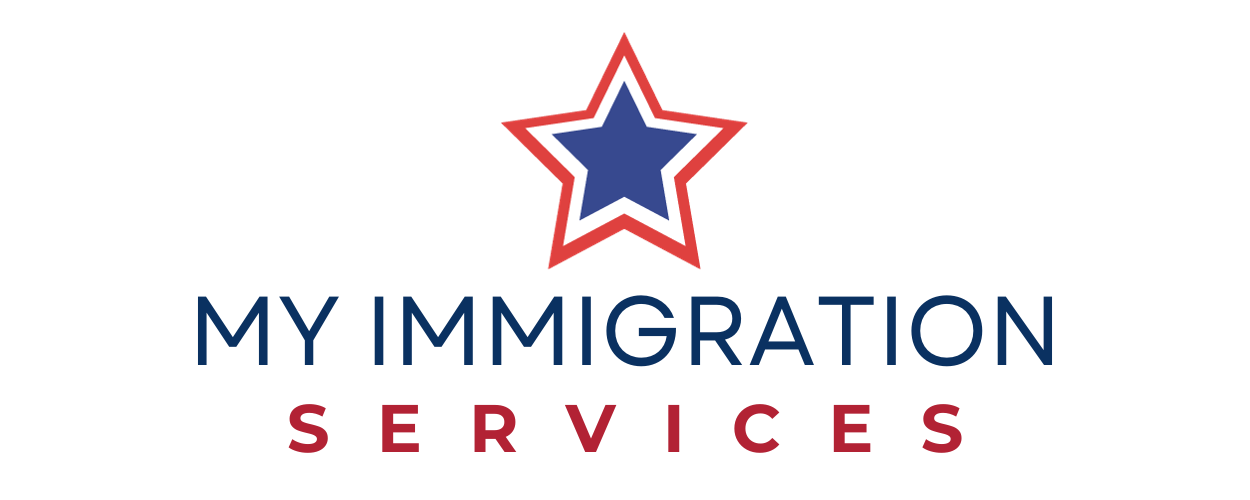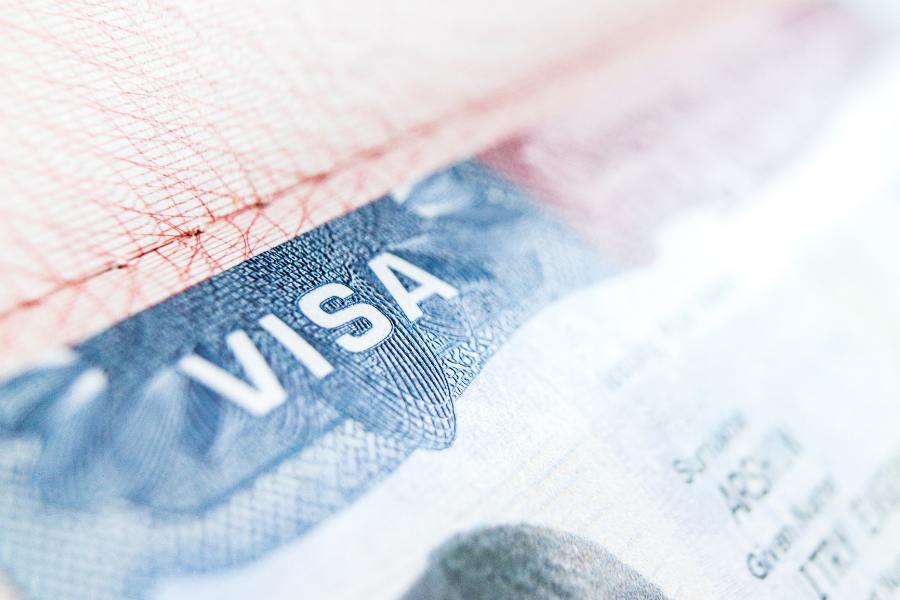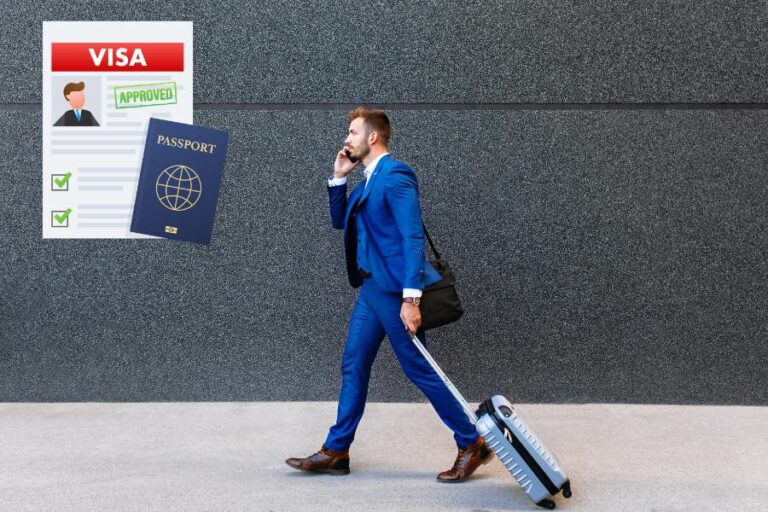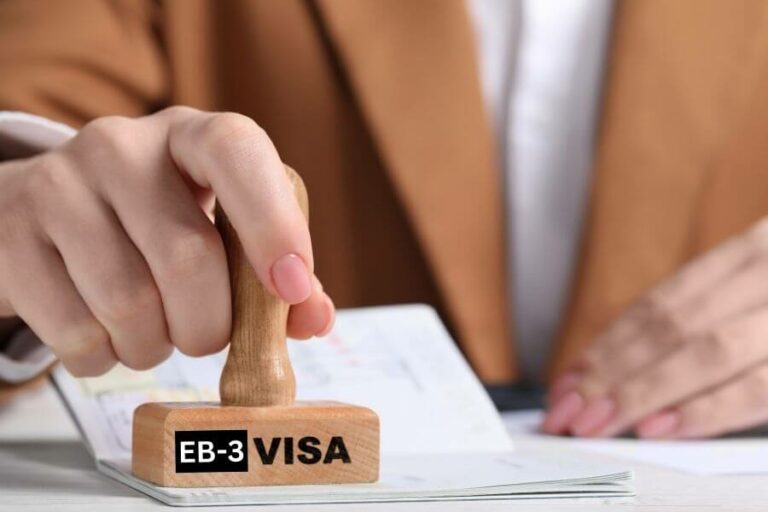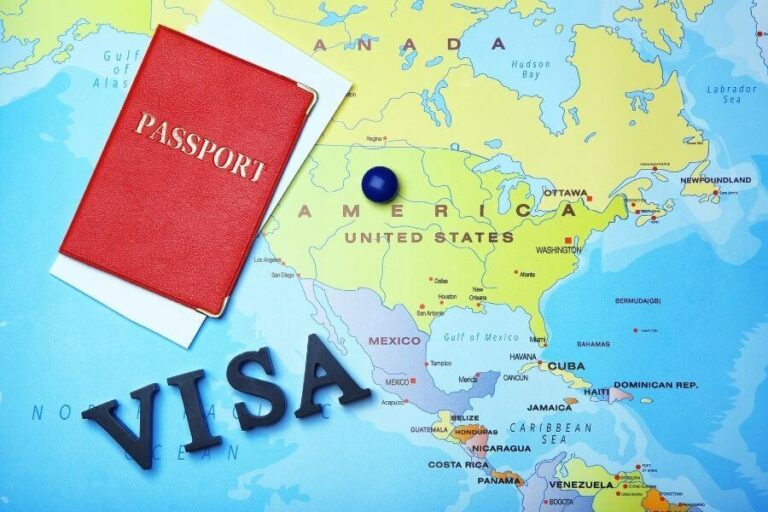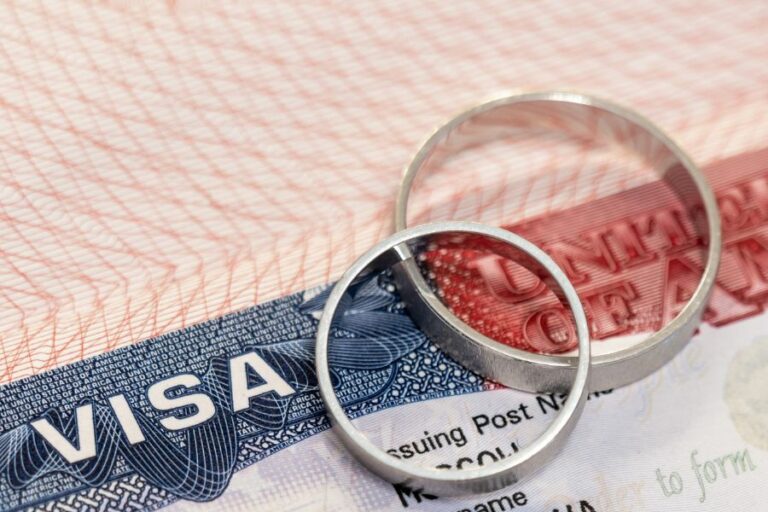EB-4 Visa for Special Immigrants: What You Need To Know
The EB-4 Visa is a U.S. immigrant visa category for “special immigrants” as defined by U.S. immigration law.
This designation includes various specific roles and situations, often encompassing people who have served roles that promote U.S. interests, humanitarian causes, or who hold particular jobs that require them to be allowed permanent residence for their continued work.
Although there are several categories of ‘special immigrants’ eligible for an EB-4 immigrant visa, it is most commonly utilized by religious workers.
Who is eligible for an EB-4 visa?
The EB-4 visa is designated for “special immigrants” and covers a variety of roles and professions that are deemed important to the U.S. Each eligibility category has its own set of criteria.
Here’s a summary of the primary eligibility categories for the EB-4 visa:
Religious Workers
Requirements:
- Must have been a member of a recognized religious denomination or organization for at least 2 years prior to applying for an EB-4 visa (proof required). This work can be either paid or unpaid, but if it’s unpaid, it should be as a part of an established program for temporary, uncompensated missionary work that is a traditional part of the denomination’s religious activity.
- Coming to work as a minister or in a religious vocation or occupation (may require a U.S. bachelor’s degree or foreign equivalent)
- There must be a job offer in the U.S. from the same religious group the applicant belongs to; or the denomination (or its nonprofit affiliate) to work in a professional capacity in a religious vocation or occupation.
- The petitioning organization must show how the religious worker will be compensated for the job, including specific details of the compensation arrangement.
- It’s worth noting that there’s a sunset date for the non-minister category of religious workers. This means that unless Congress extends the date, only ministers will be eligible for the EB-4 category after a certain date.
- Like other visa categories, applicants must meet health and character requirements.
Examples of religious workers who may qualify:
- A religious minister, nun, priest, rabbi, ordained deacon or monk
- A religious instructor, counselor, or catechist
- A worker in a religious health care facility
- A religious broadcaster
International Organization Employees or Retirees
Qualifying international organizations include:
- North Atlantic Treaty Organization (NATO)
- Organization of American States (OAS)
- Inter-American Defense Board (IADB)
- Inter-American Defense College (IADC)
- International Monetary Fund (IMF)
- World Bank
- International Telecommunications Satellite Organization (INTELSAT)
- International Telecommunications Satellite Organization (ITSO)
Eligibility:
- A retired officer or employee (and their eligible family members) of a qualifying international organization
- A surviving spouse of a deceased officer or employee of a qualifying international organization
- An unmarried son or daughter of a current or former officer or employee of a qualifying international organization
Broadcasters
Noncitizens (and their spouses and children) who are coming to work in the United States as a broadcaster for United States Agency for Global Media (USAGM), or for a grantee of the USAGM.
The term “broadcaster” may include:
- Reporter
- Writer
- Translator
- Editor
- Producer
- Announcer
- News broadcast host
- News analysis
- Editorial and other broadcasting features
The term broadcaster does not include noncitizens performing purely technical or support services or working in the entertainment field.
Certain Iraqi & Afghan Nationals
Iraqi and Afghan Nationals who have provided faithful and valuable service while employed by (or on behalf of) the U.S. government and experienced or are experiencing an ongoing serious threat as a consequence of that employment.
Eligibility:
- Afghan or Iraqi national who worked with the U.S. armed forces as a translator.
- Iraqi national who was employed by or on behalf of the U.S. government for no less than 1 year beginning on or after March 20, 2003. Source
- Afghan national who was employed by or on behalf of the U.S. government or in the International Security Assistance Force (ISAF) (or any successor name for the ISAF) in Afghanistan.
Note: They will need a favorable written recommendation from a General or Flag Officer in the unit they supported, or from the Chief of Mission or their designee. Also, they must not have any disqualifying factors, like certain criminal backgrounds or security concerns.
Juvenile court dependents
Foreign-born individuals who are under court protection because they cannot be reunited with a parent due to abuse, abandonment, neglect, or a similar reason.
Eligibility:
- Under 21 years old
- Currently living in the United States (you cannot apply from outside the country)
- Have never been married (with exception to marriages that ended in annulment, divorce, or death)
- Have a valid juvenile court order issued by a state court in the United States (which also has its own criteria)
- Be eligible for USCIS consent (sought the juvenile court order to obtain relief from abuse, neglect, abandonment or a similar basis under state law and not primarily to obtain an immigration benefit)
- Have written consent from the Department of Health and Human Services (HHS) and Office of Refugee Resettlement (ORR) to the court’s jurisdiction if you are currently in the custody of HHS and the juvenile court order also changes your custody status or placement.
Physicians
Requirements:
- Graduation from a foreign medical school or licensure as practicing physician in a foreign country.
- Full and permanent licensure to practice medicine in a U.S. state on January 9, 1978, and practicing medicine in a state on that date.
- Admission to the United States before January 10, 1978, as a J or H nonimmigrant.
- Continuous presence in the United States since that admission in the practice or study of medicine.
While the above covers the most common categories, there are some others, such as battered spouses or children, foreign medical graduates, Panama Canal company or Canal Zone government employees or S nonimmigrant (informants or witness for law enforcement agency)1.
Every category has their own specific requirements, so be sure to check the USCIS website for more details or speak with an immigration lawyer to determine eligibility.

How to apply for an EB-4 visa?
Applying for an EB-4 visa involves a series of steps, which differs to a degree depending if you are applying within the U.S. or outside the U.S.
Here’s a general overview of the process:
1) Petition Filing:
The vast majority of applicants (beneficiaries) seeking an EB-4 visa need to file the Form I-360, Petition for Amerasian, Widow(er), or Special Immigrant. However, a petitioner will need to file this form with the U.S. Citizenship and Immigration Services (USCIS).
Note: The petitioner will be either a U.S. citizen, lawful permanent resident (green card holder), U.S. employer, or other qualified individual or entity.
2) Adjudication by USCIS:
USCIS reviews the petition. If it’s approved, the USCIS will issue an approval notice. This approval notice typically includes the priority date assigned to the beneficiary.
3) Visa Bulletin Monitoring:
Each year, there’s a maximum number of EB-4 visas that the U.S. government can issue.
Because there are limits on how many EB-4 visas can be given each year, sometimes there are more people who want these visas than there are visas available. When that happens, applicants may have to wait for their turn to get a visa number.
The day the USCIS receives an applicant’s request to get an EB-4 visa is called the “priority date”2. It’s like your place in line. So, those with an earlier priority date will take preference.
To keep track of when their turn is coming, applicants can check the U.S. Department of State’s monthly Visa Bulletin. This bulletin tells them if their priority date is now “current,” meaning they can move forward with their visa application process.
As soon as the visa is available, the individual can continue on to the next steps.
4) Medical Examination and Vaccination:
Before adjusting status or attending the consular interview, the applicant must undergo a medical examination by a USCIS-approved doctor (or a designated panel physician approved by the U.S. Embassy or Consulate in your home country).
You will be informed when it’s time for the medical exam by USCIS (if residing inside the U.S.) or the National Visa Center (if residing outside the U.S.). These medical exams will be needed when submitting your forms in the following steps.
5a) Adjustment of Status [If applying from within the U.S.]:
If the applicant is already in the U.S. on another visa status, they will file Form I-485 (Application to Register Permanent Residence or Adjust Status) to become a permanent resident without leaving the country.
In addition to this form, personal documents and evidence will be required, such as a copy of your passport, medical exam, and birth certificate. The form I-485 has instructions that outline the required supporting documents. You can also reach out to USCIS with any questions.
5b) Consular Processing [If applying from outside the U.S.]:
If you are outside the U.S., the process differs at this point, so disregard step “5a” above.
At this time, you’ll start by completing an online visa application form (DS-260).
You will also need to submit the required documents and evidence. The U.S. Embassy or Consulate’s website or the online application portal for the DS-260 provides guidance on additional documents you’ll need to gather, like a copy of your passport, birth certificate, medical exam, etc.
In some EB-4 categories, a signed affidavit of support (Form I-864) from the petitioner might be required during this time to prove that the applicant will not become reliant on the U.S. government.
Payments: Both the I-360 and I-485 forms, as well as the forms required during consular processing (DS-260 & I-864), come with associated fees that must be paid when submitting them. We will go over the fees for these forms further below.
6) Biometrics
After submitting your required forms for adjustment of status or consular processing, a biometrics appointment will be set for you. You will be notified by mail. This typically occurs 3-8 weeks after submitting your forms.
7) Interview
After the NVC processes your forms and confirms everything is acceptable, they will forward them to the US consulate for review. The US consulate will then reach out for an interview, which usually occurs a couple of months after submitting everything to the NVC.
After the interview, you just need to wait for approval. You can check your case status here.
8) Receive Green Card:
After approval of the I-485 form or the immigrant visa application at the consulate, the applicant will become a U.S. permanent resident and will receive their green card.
*Certain categories may have specific requirements or additional steps*
For instance, Iraqi or Afghan translators must provide evidence of their translation service and a recommendation or commendation for their work with the U.S. government.
Be sure to research the specific category you plan to apply for.
EB-4 Visa Costs & Forms
The filing fees for the EB-4 visa may vary depending on the specific category and circumstances. Below is a summary of the current filing fees:
| Forms | Fees (Applying Within U.S.) | Fees (Applying Outside U.S.) |
|---|---|---|
| I-360 (Petition for Special Immigrant) | Filling fee: $435 Immigrant fee: $220 | $435 |
| I-485 (Application to Register Permanent Residence or Adjust Status) | $1,140 | n/a |
| DS-260 (Immigrant Visa Application) | n/a | $345 |
| I-864 (Affidavit of Support) | n/a (typically) | $120 |
| Biometrics (required for applicants aged 14 to 79) | $85 | $85 |
EB- 4 Visa Processing Time
The processing time for an EB-4 visa can vary depending on several factors, usually taking from 17-32 months in total from start to finish. Check below the estimated case processing times for each form:
| FORM | PROCESSING TIME |
|---|---|
| I-360 | ~7-8 months |
| I-485 (within the U.S.) | ~10-32 months |
| DS-260 (outside the U.S.) | 1-3 months (handled by NVC or consulate) |
| I-864 (outside the U.S.) | ~10-20 months (handled by USCIS) |
Note:
- Form DS-260 is submitted by the immigrant applying for the visa and is processed by the National Visa Center (NVC) who then forwards the case to the appropriate U.S. Embassy/Consulate for the visa interview.
- Form I-864, which is filed by the petitioner (supporter), is processed by USCIS, so processing times will vary between the two forms even though they may be submitted concurrently. Processing times will also vary based on the origin country of the applicant.
Annual Limit for EB-4 Visa
Generally, the annual cap for the EB-4 visa category is set at 10,000 visas3.
This number includes the principal applicants as well as their eligible family members (spouses and unmarried children under 21). However, it’s important to note that certain subcategories within the EB-4 class, like religious workers, have specific caps distinct from the overall EB-4 limit.
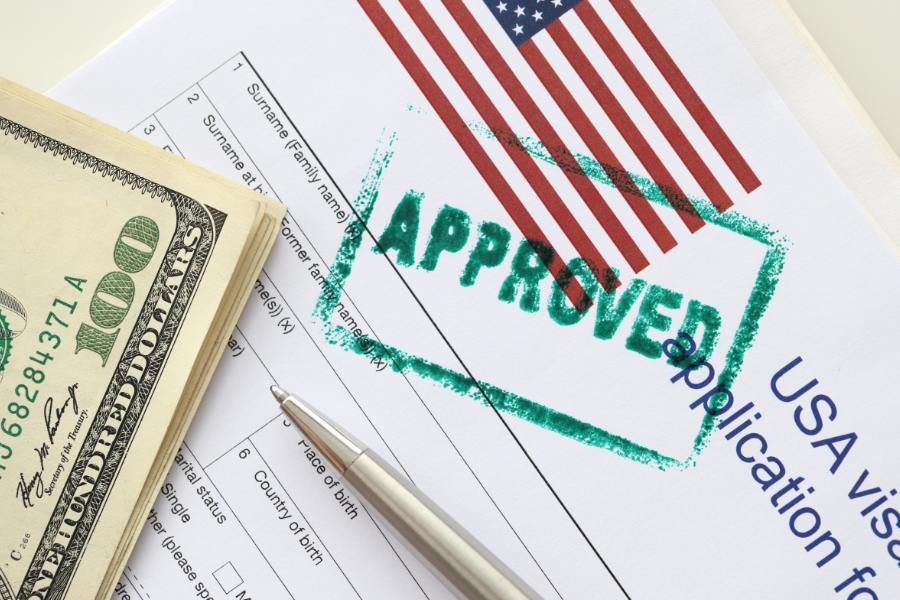
Benefits of EB-4 Visa
The EB-4 visa offers several benefits for its holders:
- Permanent Residency: One of the primary advantages of the EB-4 visa is that it grants lawful permanent residency to its holders. This means that you can live, work, and study in the United States indefinitely without the need to renew the visa.
- Bring Immediate Family: As an EB-4 visa holder, your immediate family members, including your spouse and unmarried children under 21, are eligible to join you in the U.S. They can also apply for permanent residency as your derivatives.
- No Labor Certification Required: Unlike some other employment-based visa categories, the EB-4 visa does not require the applicant to undergo the labor certification process, which can be time-consuming.
- Work Authorization: EB-4 visa holders have the freedom to work for any employer in the U.S. and can switch jobs without jeopardizing their immigration status.
- Eligibility for U.S. Citizenship: After holding permanent residency for a specified period (typically five years), EB-4 visa holders are eligible to apply for U.S. citizenship.
- Access to Public Benefits: As permanent residents, EB-4 visa holders can access certain public benefits that are available to U.S. residents.
- Education: EB-4 visa holders and their dependents can attend U.S. schools and universities, and may also be eligible for in-state tuition rates in certain states.
- Travel Flexibility: Once you have your green card, you can travel in and out of the U.S. with more flexibility. However, it’s essential to avoid long absences from the U.S. to ensure you don’t jeopardize your permanent resident status.
- Protection Under U.S. Laws: As a lawful permanent resident, you have the protection of all laws of the United States, the state of residence, and local jurisdictions.
- Sponsorship: In the future, once you become a U.S. citizen, you can sponsor certain family members for their own green cards.
What happens if the EB-4 visa application is denied? Can I appeal the decision?
If the EB-4 visa application is denied, the U.S. Citizenship and Immigration Services (USCIS) will provide a written notice that will explain the reason for the denial.
Whether you can appeal the decision or not depends on the reason for the denial.
- Appeal: If the decision can be appealed, the denial notice will provide instructions on how to file an appeal and the appropriate appellate jurisdiction, whether it’s the Administrative Appeals Office (AAO) or the Board of Immigration Appeals (BIA).
- Motion to Reopen or Reconsider: If an appeal is not available or if you decide not to appeal, you may have the option to file a Motion to Reopen or a Motion to Reconsider with USCIS. A Motion to Reopen is based on factual grounds, such as presenting new evidence. A Motion to Reconsider is based on legal arguments, aiming to show that the decision was incorrect based on the evidence and laws in place at the time of the decision.
- No Appeal: Some decisions cannot be appealed, but you might be able to file a new application or petition.
Time limits and specific procedures can be very strict, so it’s crucial to read the denial notice carefully and act within the stipulated timeframes.

EB-4 FAQs
The EB-4 green card is a United States permanent residence visa under the Fourth Preference category, designated for “special immigrants.” These include certain religious workers, special immigrant juveniles, U.S. foreign service post employees, retired employees of international organizations, certain physicians, and others who meet specified criteria within this category.
The EB-4 is an immigrant visa leading to permanent residency for various “special immigrants,” including religious workers. The R-1 is a non-immigrant visa specifically for religious workers, allowing them temporary stay in the U.S. The key difference is the permanent versus temporary nature of the residency status each visa provides.
No, it is not necessary for EB-4 applicants to have a job offer in the U.S. Unlike some
other employment-based visa categories, a job offer and a labor certification are
typically not required for EB-4 applicants. However, each sub-category within the EB-4
visa class may have its own set of eligibility requirements that need to be met. As
always, it’s advisable to consult with an immigration attorney or official sources for
specific details related to individual circumstances.
Yes, you can apply for the EB-4 visa with your family. When you apply for an EB-4 visa
as the principal applicant, your immediate family members, which include your spouse
and unmarried children under the age of 21, are eligible to apply for derivative EB-4
visas.
Yes, the EB-4 visa is an employment-based immigrant visa category that grants
its holders lawful permanent residency in the United States. Once you have
received your EB-4 visa and, subsequently, your green card, you are authorized to
work in the U.S. for any employer without needing a separate work permit.
Additionally, you can change jobs without jeopardizing your immigration status.
The freedom to work and live permanently in the U.S. is one of the primary
benefits of the EB-4 visa.
More Employment-Based Visa Guides:
- EB-1 Visa (outstanding professors, researchers, people with extraordinary abilities)
- EB-2 Visa (foreign professionals with advanced degrees or exceptional abilities in certain fields)
- EB-3 Visa (skilled worker, professional, or other worker)
- EB-5 Visa (immigrant investors)
References:
- https://www.uscis.gov/working-in-the-united-states/permanent-workers/employment-based-immigration-fourth-preference-eb-4 ↩︎
- https://travel.state.gov/content/travel/en/News/visas-news/employment-based-fourth-preference-eb4-announcement.html ↩︎
- https://www.nolo.com/legal-encyclopedia/eb-4-visa-special-immigrants-who-qualifies.html ↩︎
